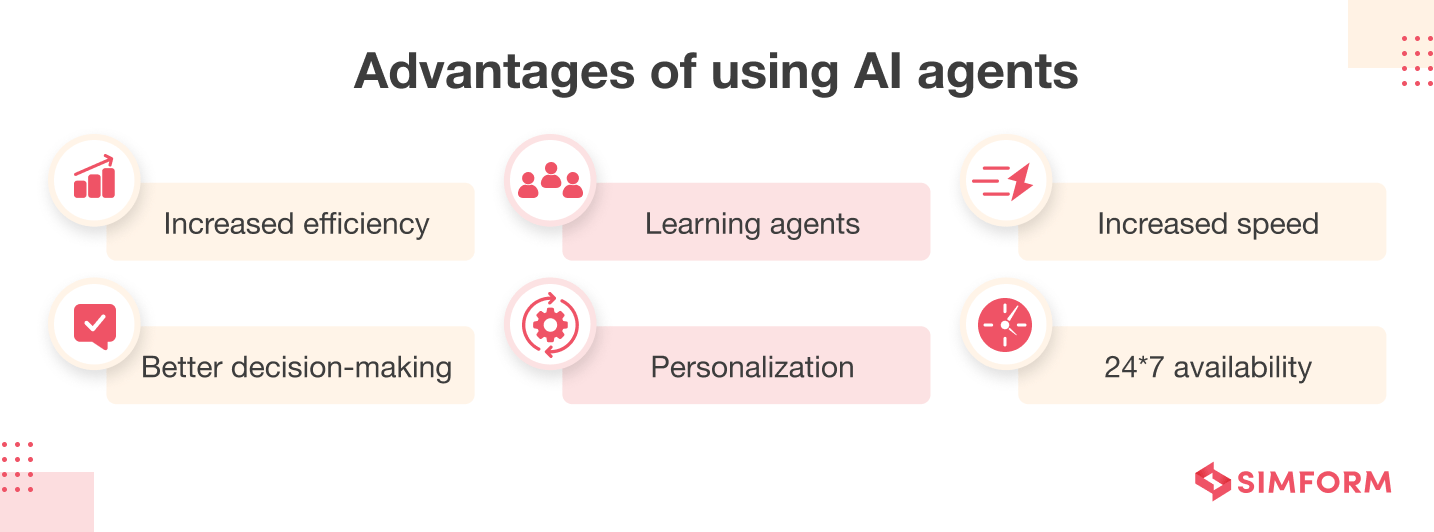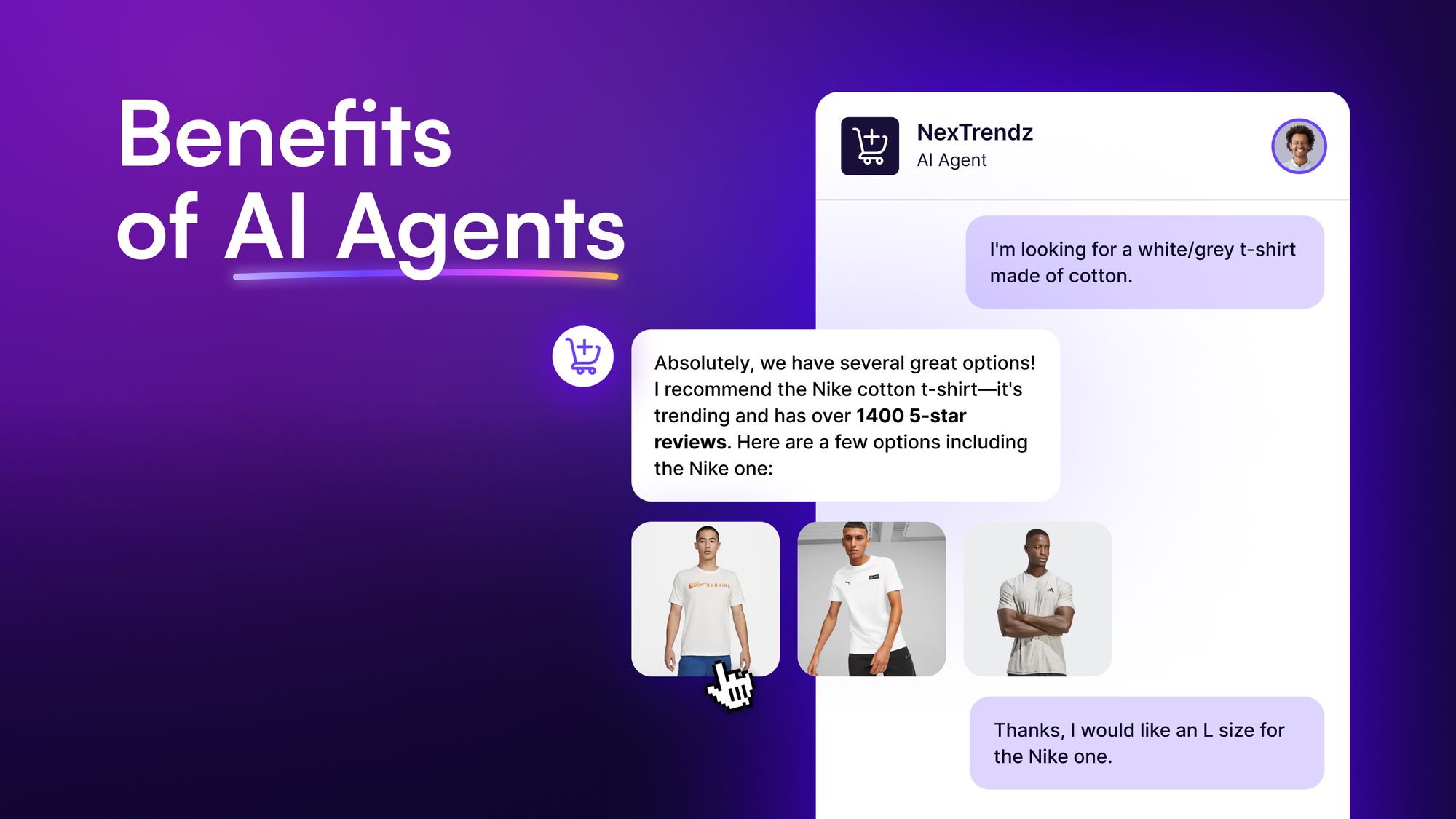Opening the Complete Potential of the AI Agents Marketplace: What You Required to Know
The AI agents marketplace presents considerable opportunities for companies aiming to improve effectiveness and automation. However, guiding with this landscape needs a strategic method. Firms need to analyze their details needs and recognize ideal AI options. As companies start this journey, they face vital decisions that can form their future. What factors should they prioritize to guarantee successful assimilation and take full advantage of advantages? Recognizing these components is necessary for making educated choices.
Recognizing the AI Agents Marketplace Landscape
As the need for AI services remains to expand, the landscape of the AI agents marketplace has actually progressed into a dynamic ecosystem. This marketplace encompasses a diverse variety of services and products made to enhance automation and performance throughout different industries. Key players include developed technology firms, startups, and open-source neighborhoods, each contributing unique innovations and functionalities.
The competitive nature of this atmosphere promotes fast advancements, causing a selection of AI agents customized to details jobs, from customer care chatbots to complicated decision-making systems. As services significantly recognize the worth of AI, they look for remedies that offer scalability and integration with existing technologies.
Regulatory factors to consider and moral effects better form the marketplace, engaging developers to prioritize transparency and accountability. On the whole, the AI agents marketplace remains to expand, driven by technical advancement and a growing understanding of the transformative capacity of expert system.
Key Applications of AI Agents Throughout Industries
AI agents are transforming various industries by automating jobs that enhance operational performance and decision-making. In the health care market, AI agents assist in diagnostics and individual administration, streamlining processes and enhancing outcomes. In money, they assess market trends and facilitate trading, allowing quicker and extra enlightened investment decisions. Retail industries use AI agents for stock administration and individualized client experiences, maximizing sales approaches and inventory turnover.
Manufacturing additionally benefits, with AI agents monitoring equipment and anticipating maintenance needs to lessen downtime. In advertising and marketing, they assess customer habits and automate targeted campaigns, increasing engagement and conversion rates. AI agents play a vital function in logistics, enhancing supply chains and lowering costs through wise routing and demand projecting. As companies throughout these sectors embrace AI agents, they disclose new levels of productivity and innovation, placing themselves for future development and affordable advantage.
Recognizing the Right AI Agents for Your Company Needs
How can businesses establish which AI agents line up best with their certain needs? To make educated choices, organizations need to begin by reviewing their functional goals and determining the particular difficulties they face. This entails specifying the essential features that AI agents will certainly sustain, such as customer care, information analysis, or process automation.
Once the demands are clear, business can check out the marketplace for AI agents tailored to those features. They need to think about elements such as the representative's capabilities, integration ease with existing systems, and versatility to different operations. Additionally, examining study or reviews from similar industries can give understandings right into effective executions.
Consulting with technological professionals or performing pilot tests can better refine choices, ensuring that the picked AI agents not just fulfill instant operational requirements but likewise align with lasting calculated objectives. This systematic method boosts the likelihood of picking one of the most effective AI solutions.
Assessing AI Agents: Metrics and Efficiency Indicators
Assessing the performance of AI agents calls for a clear set of metrics and efficiency indicators tailored to the certain goals of the organization (AI Agents Marketplace). Key metrics usually consist of accuracy, which determines the agent's capability to give correct outputs, and reaction time, reflecting the speed at which the representative refines demands. In addition, user complete satisfaction ratings use insights into exactly how well the representative fulfills user assumptions
Involvement metrics, such as frequency of use and retention rates, can indicate the agent's effectiveness in keeping customer interest. Cost-effectiveness is one more vital performance indicator, determining whether the advantages got from the AI representative validate its functional expenses.
Lastly, flexibility and learning prices are significant, as they gauge the agent's capability to enhance gradually. Together, these metrics give a substantial framework for assessing AI agents, making it possible for companies to make informed decisions concerning their integration and optimization.

Finest Practices for Incorporating AI Agents Into Your Procedures
Successful combination of AI agents into operations requires a tactical approach that aligns with the organization's goals. Companies must examine their specific demands and determine the areas where AI can add the most worth. This calls for a detailed evaluation of existing process and procedures to pinpoint ineffectiveness.
Next, it is vital to select the ideal AI agents useful link customized to these requirements, making certain compatibility with existing systems. Educating staff members to work together with AI agents boosts acceptance and promotes a collective environment.
Furthermore, companies should establish clear communication networks to help with comments and changes, making certain continuous renovation of AI functionalities.
Keeping track of performance metrics post-implementation permits for recurring examination, assisting companies adapt and optimize their AI techniques over time. By adhering to these best practices, businesses can successfully leverage AI agents to boost performance and attain their calculated objectives.
Navigating Honest Considerations in AI Fostering
What honest dilemmas arise when organizations take on AI technologies? The implementation of AI agents provides various difficulties, specifically relating to responsibility, openness, and fairness. Organizations has to come to grips with guaranteeing that their AI systems do not perpetuate predispositions, as algorithms educated on historic data can enhance existing inequalities. In addition, the opacity of some AI decision-making procedures can result in an absence of responsibility, making it hard to identify responsibility in the event of errors or adverse outcomes.
Privacy concerns likewise emerge, as AI systems usually need extensive information collection, questioning regarding permission and data safety. Moreover, the prospective displacement of work because of automation introduces ethical factors to consider surrounding workforce effect and financial inequality. Organizations should browse these intricacies carefully, cultivating an honest framework that focuses on human civil liberties and societal welfare while optimizing the advantages of AI innovations. By resolving these moral considerations, organizations can assure liable AI adoption.
Future Patterns: What to Expect in the AI Agents Marketplace
The AI agents marketplace is positioned for significant development, marked by boosted automation abilities that improve jobs throughout various markets. Together with this, boosted customization functions are anticipated to tailor individual experiences a lot more properly, catering to individual preferences and needs. These patterns recommend a future where AI agents end up being indispensable devices for both organizations and customers.
Raised Automation Capacities
Arising patterns in the AI agents marketplace signal a substantial leap in automation capabilities, improving industries and operations. As AI agents end up being a lot more sophisticated, they are significantly able to manage intricate tasks with very little human treatment. This evolution enables organizations to enhance operations, decrease costs, and enhance productivity. Fields such as logistics and production are leveraging AI agents to automate supply monitoring and predictive upkeep, leading to optimized performance. Furthermore, the combination of maker knowing algorithms empowers these agents to pick up from past information, boosting their efficiency gradually. As automation comes to be extra common, companies can anticipate transformative modifications in how they operate, leading the way for innovative solutions and brand-new affordable advantages in the marketplace.

Boosted Personalization Attributes
Just how will improved customization functions improve user experiences in the AI agents marketplace? These developments are readied to reinvent how individuals engage with AI agents, customizing services to private preferences and demands. By examining customer information and behavior, AI agents will certainly use suggestions and remedies that reverberate even more deeply with each customer. This shift in the direction of hyper-personalization will not only enhance customer contentment but additionally foster higher commitment to certain platforms. Furthermore, the integration of feedback devices will enable AI agents to adjust in real-time, ensuring that the user experience consistently progresses. As these attributes become standard, the marketplace will likely see increased involvement and retention, driving advancement and competition amongst AI programmers to use the most customized experiences feasible.
Often Asked Concerns

Just how Do I Choose the Right AI Representative Supplier?
Choosing the right AI representative vendor includes evaluating their expertise, dependability, and client feedback. Examining the technology's compatibility with existing systems and comprehending prices versions are necessary steps in making a notified decision.
What Are the Costs Connected With Deploying AI Agents?
The costs related to releasing AI agents include licensing charges, framework costs, upkeep, training, and potential combination expenses. Organizations needs to review these aspects to effectively allocate execution and guarantee an effective release method.
Can AI Agents Be Personalized for Specific Organization Demands?
AI agents can without a doubt be personalized to fulfill specific organization needs, permitting companies to read the article customize performances and efficiency see this site - AI Agents Marketplace. This versatility boosts functional effectiveness, addresses one-of-a-kind challenges, and cultivates development in various fields and industries
Just how Do I Guarantee Data Privacy With AI Agents?
To assure information privacy with AI agents, organizations ought to execute durable encryption, develop clear information handling policies, perform routine audits, and use anonymization methods to secure delicate details during processing and storage.
What Assistance Alternatives Are Readily Available After AI Agent Execution?
After executing AI agents, organizations commonly have access to various support options, including technological support, individual training, and regular updates. These resources ensure smooth operation and assistance attend to any kind of obstacles that may occur post-implementation.